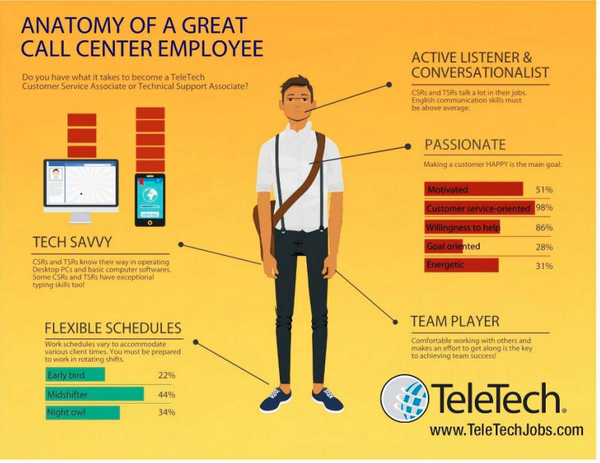Comparing Pricing and Features Among Top Vendors
 Contact centers are increasingly moving to the cloud for the convenience, flexibility and affordability it provides. However, shopping for cloud-based call center software can be tough. Many vendors do not publish their prices online, and some are not transparent about which features are included in their plans and which cost extra.
Contact centers are increasingly moving to the cloud for the convenience, flexibility and affordability it provides. However, shopping for cloud-based call center software can be tough. Many vendors do not publish their prices online, and some are not transparent about which features are included in their plans and which cost extra.
This presents a problem for buyers because it can take days, weeks, or even months of legwork to get enough information to compare products. We wanted to simplify the process, so we contacted various vendors and conducted extensive web research to get a sense of what our competitors are charging and how fees are structured. We couldn’t get every piece of information from every vendor, but we were able to collect more detailed information than what you’ll find anywhere else on the web.
Five9
Pricing structure: Monthly per-agent fee, plus additional telecom fees for calls outside of the continental United States
Cost: The blended call center product, which includes inbound and outbound calling and all features below, costs $165 a month per agent if you have more than 10 agents and $175 per agent if you have fewer than 10. One-time setup fee of $250.
Features offered: CTI and screen pop; VoIP; power dialer; interactive voice response (IVR); progression dialer; automatic call distributor (ACD); preview dialer; skills-based routing; web callback; queue callback; campaign and list management; CRM integration; text-to-speech; cloud APIs; real-time reporting and dashboards; 10-plus standard reports; predictive dialer; social customer care; mobile customer care
Features not included in monthly price: Calling outside the continental U.S.
Transparency: Medium to high
Five9 does not disclose pricing on its website. When we contacted the call center, the agent was helpful and straightforward about pricing and features. She also provided her direct line for future inquiries.
Telax
Pricing structure: Flat monthly fee that varies based on features
Cost: $35 to $185 per agent per month, depending on features
Features offered: IVR; ACD; call monitoring, reporting and recording; dashboards; queue management; and more
Features not included in monthly price: Telax does not offer a predictive dialer, so that is not included in any plan. The lowest-priced plans include basic inbound and outbound calling, basic auto attendant, and a few additional features. More expensive plans include the full range of features.
Transparency: Medium to high
Telax is clear about the fact that it offers a flat monthly fee for each agent, and it guarantees there are no hidden costs. Pricing is not published online, and an agent via web chat would not disclose it. However, a call to the customer service line resulted in detailed info. The agent was friendly and helpful.
As a side note, Telax advertises that it is the “only contact center solution in the world with a fixed-firm price.” However, other a few other vendors offer fixed pricing, too.
CallFire
Pricing structure: Billed on a per-minute basis; tiered pricing plans include a preset number of minutes
Cost:
- PRO – $599 a month for 20,000 minutes/text
- STARTUP – $199 a month for 5,500 minutes/texts
- LITE – $99 per month for 2,500 minutes/texts
- PAY-AS-YOU-GO: $0.05 per minute/text. Local or toll-free numbers can be rented for $1.75 to $3 per month, depending on your plan
Features offered: Single-line autodialer; contact upload; unlimited call transfers; call dispositions and statistics; campaign and list management; customer history and notes; real-time reporting; APIs; CRM integration support; and more
Features not included in monthly price: None
Transparency: High
CallFire publishes its rates on the website, and an agent was happy to help explain pricing and features via web chat. He explained that the price is strictly based on the number of minutes used. It doesn’t matter how many agents are working as long as the minutes are not exceeded. There are no setup fees, and IVR and autodialer are included in the price, he said.
8×8 Virtual Contact Center
Pricing structure: Fixed monthly price, but varies depending on features
Cost: $115-$185 per agent per month, depending on features
Features offered: Skills-based routing; IVR; desktop sharing; web callback; call recording; real-time reporting; historical reporting; real-time monitoring; CRM integration; virtual queue; and more
Features not included in monthly price: Unclear
Transparency: Medium
Like many vendors, 8×8 also does not publish prices on its website. The customer service representative we spoke with was willing to provide a price range for monthly service, but she would not specify whether there are setup fees. We were also unable to get a clear idea of what features are offered at which price points.
InContact
Pricing structure: Fixed price per agent for the core platform with additional fees for additional features
Cost: Unknown monthly per-agent fees based on services; $2,000 a month minimum for all customers, regardless of the number of agents
Features offered: Multi-channel ACD; speech-enabled IVR; CRM and CTI integration; customer feedback; predictive dialer; reporting and analytics; workforce management; quality management; network connectivity; disaster recovery; free software updates twice annually
Features not included in monthly price: The core platform includes features such as ACD, IVR, reporting, a predictive dialer, self-service and more. However, we could not get a clear picture of exactly what it does not include.
Transparency: Medium
InContact does not list prices on the website. The customer service agent shared the $2,000 a month minimum, and mentioned that the product usually only makes sense of companies with 15 agents or more. He did not share the per-agent, per-month price, saying that is dependent on the features that are selected and the needs of the business. He referred us to a member of the sales team for specifics.
As a side note, this customer service agent was one of the friendliest and most helpful we encountered. He was forthcoming about the fact that inContact may not make financial sense for very small companies. He spent a significant amount of time on the phone walking us through features, options and scalability of the product.
Interactive Intelligence
Pricing structure: Fixed monthly price
Cost: Unknown. However, the company does offer three tiers of its cloud software: CaaS Small Center for businesses with 10-50 agents; CaaS for 25-5,000 agents; and PureCloud for companies with 10-unlimited agents.
Features offered: Multichannel routing (voice, email, chat); IVR; speech recognition; multi-channel recording; predictive dialer; quality management, real-time speech analytics; post-call and IVR surveys; Salesforce integration; supervisor and reporting applications; mobility; and more
Features not included in monthly price: Unknown
Transparency: Low (as far as we can tell)
Interactive Intelligence does not list prices online. We tried twice to initiate a web chat for details. The first time, the chat tried reaching four agents, each of whom did not answer, and then we were put in queue with an estimated a one-minute wait time. That was 3:26 p.m. The session timed out at 4:05, still without a response to our first question. The second time, an agent joined the chat four minutes after we initiated it, then quickly signed off. The marketing department sent a follow-up email with links to the plan information we found online, but no specific details. We later called customer service but sat on hold for 25-plus minutes without a response. (Note: After this blog was complete, a representative did leave a message trying to get back in touch.)
TalkDesk
Pricing structure: Flat per-agent monthly rate, plus additional per-minute fees for calling
Cost: The monthly rates if you agree to annual contract are:
- BASIC – $15 a month per agent; suited for small businesses
- PROFESSIONAL – $25 per agent per month; SMB market
- ENTERPRISE – $45 per agent per month; large businesses
Incoming calls cost $0.02 per minute and outbound calls cost $0.03 per minute. Those are U.S. and Canadian rates only; international calls have different and unpublished rates.
Features offered: IVR; built-in CRM; call queues; skills-based routing; team dashboards; a wide variety of software and email integrations; and more
Features not included in monthly price: Depends on the plan you choose. Click here for a side-by-side comparison of the features that come with various plans. None of the plans include calling fees or a predictive dialer.
Transparency: Medium to high
TalkDesk clearly states its prices on the website, and the side-by-side comparison of features is very useful for deciding what tier of service meets your needs. The only downside is that the per-minute pricing and the lack of a predictive dialer make your monthly costs difficult to predict in advance. However, the company does say it plans to add a predictive dialer down the road.
Kunnect sells 100% cloud-based call center software that includes a predictive dialer to businesses and political campaigns. Our software, hosted seamlessly in the Amazon platform, manages all inbound and outbound calling for a flat rate of $125 per agent per month with a flat deposit of $125 per user. There are no hidden fees. In addition to the predictive dialer, features include: inbound and outbound calling, CRM integration, call scripting, call recording, ACD, skills-based routing, IVR, live monitoring, real-time statistics, historical reporting and more.



